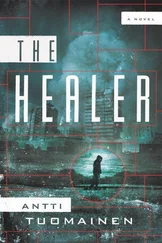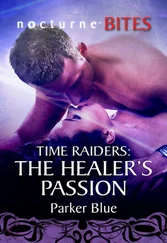Elizabeth Scarborough - The Healer's War
Здесь есть возможность читать онлайн «Elizabeth Scarborough - The Healer's War» весь текст электронной книги совершенно бесплатно (целиком полную версию без сокращений). В некоторых случаях можно слушать аудио, скачать через торрент в формате fb2 и присутствует краткое содержание. Жанр: Старинная литература, на английском языке. Описание произведения, (предисловие) а так же отзывы посетителей доступны на портале библиотеки ЛибКат.
- Название:The Healer's War
- Автор:
- Жанр:
- Год:неизвестен
- ISBN:нет данных
- Рейтинг книги:4 / 5. Голосов: 1
-
Избранное:Добавить в избранное
- Отзывы:
-
Ваша оценка:
- 80
- 1
- 2
- 3
- 4
- 5
The Healer's War: краткое содержание, описание и аннотация
Предлагаем к чтению аннотацию, описание, краткое содержание или предисловие (зависит от того, что написал сам автор книги «The Healer's War»). Если вы не нашли необходимую информацию о книге — напишите в комментариях, мы постараемся отыскать её.
The Healer's War — читать онлайн бесплатно полную книгу (весь текст) целиком
Ниже представлен текст книги, разбитый по страницам. Система сохранения места последней прочитанной страницы, позволяет с удобством читать онлайн бесплатно книгу «The Healer's War», без необходимости каждый раз заново искать на чём Вы остановились. Поставьте закладку, и сможете в любой момент перейти на страницу, на которой закончили чтение.
Интервал:
Закладка:
I didn't know old Xe was a magician the night I began to be iaware of his powers. If anybody had told me there was anything magical going on that night, I'd have told them they were full of crap, and assumed they either had a sicko sense of humor or had been smoking too much Hanoi Gold.
I was in the worst trouble of my life, to date, and had brought someone with me. An eleven-year-old kid lay comatose, barely breathing, on the bed by my chair.
Every fifteen minutes I repeated the same routine.
Right arm, right leg, left leg, left arm, I pulled up a spare lump of flesh from each of the little girl's limbs and pinched hard, silently daring her to kick me or slug me. Then I ground my knuckles into her chest, counted to ten, and prayed for a sign of pain.
A kick or a slap, a whimper or a wiggle, even a grimace would have gladdened my heart. But the kid just lay there, her disproportionately long limbs limp as wet rags, her breathing so shallow that it barely stirred her skinny ribs a quarter of an inch up or down.
I peeled back her eyelids one at a time and dazzled them with the beam of my flashlight, checking to see if the pupils contracted at the same rate, to the same size, or if they expanded at all. If they stayed fixed, or if one was the size of a dime while the other stayed the size of a pencil lead, both of us were in truly deep shit. I had to try them five or six times before I could be sure they were not contracting more slowly than they had fifteen minutes before. I'd been performing this same cruel routine continuously since she had been wheeled back from O.R., already deeply unconscious. Thank God, they had not yet anesthetized her for surgery.
"Come on, baby, come on," I prodded her encouragingly, as if she were my kid up to bat at a Little League game, and pumped up the blood-pressure cuff that circled her skinny upper arm. I had to pump it and release it three times before the faintest throb of pulse came through the membrane of my stethoscope. Partly that was because her pulse pressure was so weak. Partly it was because the papasan in bed five had started up again.
"Dau quadi," he whined ("much pain"), twisting in the padded cuffs binding him to the side rails. He sounded like a night in a haunted house, with the rails rattling like hail on windows, his sheets thrashing like those of a particularly agitated ghost, his bedsprings squeaking like unoiled ancient portals.
"Dau quadi!" he shrieked this time, his voice shrill with the hostility head injuries inevitably display when and if they start to heal.
All eleven of the patients then on ward six, the neurosurgery ward, were Vietnamese with some kind of trauma to the head. Most of them were civilians, war refugees. Before, we'd had two poor GIs on Stryker frames. One was a gork-a vegetable, who didn't know that he wouldn't ever move by himself again. The other guy wasn't so lucky. Both of them had been medevaced to Japan that morning, so tonight there were just Vietnamese on this side, them and George, the corpsman, and me. Ginger Phillips, who was officially in charge of the graveyard shift that night for ward six, was staying on the other half of the ward, across the hall. The EENT patients were over there, injuries and ailments of the eyes, ears, nose, and throat, a couple of GIs with sinus infections and a couple more with superficial facial wounds, as well as elderly Vietnamese suffering from cataracts and facial cancer. Men and women were mixed together on both open wards, which was true throughout the hospital. On most wards the division was between GIs and Vietnamese instead.
Papasan dau quadied again and the old man in the next bed stirred restlessly. I pulled my stethoscope out of my ears.
"Can you shut papasan up, George?" I asked. "I can't hear a damned thing for the racket."
George nodded, rose from his semislumped comic-book-reading position, and lumbered sleepily down the aisle between the beds. I waited while he threatened in a gentle, soothing voice to do hideous things to the old man, pulled the gnarled and squirmy body up in bed, and smoothed the sheets. Then I tried again. I could hear the systolic140-but the diastolic eluded me until the second reading-it was 60. Up 6 points from the previous reading. A widening pulse pressure-the difference between the first throb I heard and the last-was a sign of increased intracranial pressure. But last time the spread had been 144/ 52, so it had decreased slightly. I hoped I could take that as a good sign.
The girl's respirations were still so slow and shallow I had to Measure the movement of her ribs against the sheet to be sure she was breathing.
Her right radial pulse, before slowed to 50, was now 56, but that was not necessarily a good sign. As the pressure on her brain increased, her pulse might start racing as her squashed brain sent wild signals to her heart, panicking it into an essentially useless flurry of activity.
I took pulses in both wrists, at both ankles, and at her carotid pulse, at the base of her jaw. They were within two points of one another.
Her Foley catheter was still draining urine from her bladder, her I.V.s were still dripping on course. I wrote everything down on the chart at the end of the bed, sat on the metal folding chair, and used a towel to wipe the sweat off my face and neck.
The sweat wasn't just from the heat. It was from fear: fear that this child was going to die and I was going to have to live with it, and with myself. The fear soured in my throat and I leaned forward again and took her hand. It was clammy with sweat. How could I measure intake and output when she was sweating gallons like that, poor baby?
Her bald head was bandaged with a strip of white gauze, like an Indian headband, and her face didn't look like a child's. It looked like death, the high cheekbones jutting through the shiny flesh like carnival apples bleeding through caramel.
Her original problem was a depressed skull fracture. She'd tumbled off a water buffalo, something Vietnamese kids always seemed to be doing. I only wished the water buffalo had sole responsibility for her current condition. But unfortunately for us both, the poor kid had fallen right off that water buffalo into the hands of a numskull nurse, namely, me.
Now I was waiting to see if my carelessness had turned her simple, easily treatable injury into something that was going to kill her or make a zombie out of her.
I forced myself not to brood about how unfair it was, not to worry about what they would do to me if she died, or about what I could have done to prevent it.
Instead I held on to her hand and, in my mind, held on to her spirit, apologizing over and over and begging her to stay. "Tran, come on now, baby, keep it together. You know Kitty didn't mean to hurt you, and she's sorry, honey, she's really sorry. Just come on back. That shit of a doctor will fix your head and your hair will grow back and you can go back to mamasan and papasan and eat that bad old water buffalo, okay?
Aw, hell, sweetheart, I'm so sorry.........
The old man in the next bed, another depressed-skull-fracture case, with bilateral above-the-knee amputations, shifted slightly in bed so that his head lolled toward us. His name was Cao Van Xe, according to the strip of adhesive that had been taped to his wrist. His arrival had caused something of a stir. Some idiot with Special Forces had called a chopper out to a really hot landing zone just to load this one old man, who was probably going to die pretty soon anyway. The pilot had given the redheaded GI who loaded the old man a piece of his mind, but the man had grinned and waved and walked back into the bush. The object of all this dissension slackened his lower jaw so that it seemed to drop into a grin.
"What's with you, papasan? You think I'm as dinky dao as you, huh?"
Maybe it did sound crazy to be carrying on a monologue with first one comatose patient, then another, but in nursing school they taught us that hearing is the last sense to go, the first to kick back in. So I always chattered at my unconscious patients, telling them what I was doing, commenting on what was happening, and musing on life in general, as if talking to myself.
Читать дальшеИнтервал:
Закладка:
Похожие книги на «The Healer's War»
Представляем Вашему вниманию похожие книги на «The Healer's War» списком для выбора. Мы отобрали схожую по названию и смыслу литературу в надежде предоставить читателям больше вариантов отыскать новые, интересные, ещё непрочитанные произведения.
Обсуждение, отзывы о книге «The Healer's War» и просто собственные мнения читателей. Оставьте ваши комментарии, напишите, что Вы думаете о произведении, его смысле или главных героях. Укажите что конкретно понравилось, а что нет, и почему Вы так считаете.












